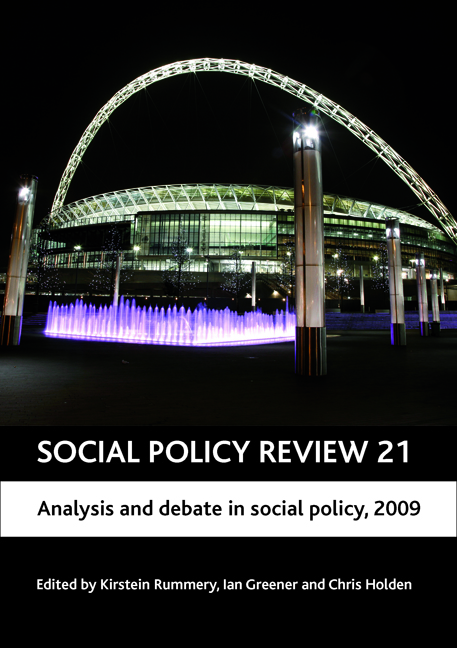twelve - Spatial rescaling, devolution and the future of social welfare
Published online by Cambridge University Press: 05 July 2022
Summary
The bounded state
The European welfare state has rested since its inception on an explicit or implicit model of the bounded nation-state. Common nationality underpins social solidarity and provides a rationale for redistribution. State boundaries lock in actors, notably capital and labour, bind their fate together, and encourage them to engage in social dialogue. Similarly, rich and poor regions are bound together, and inter-territorial redistribution is part of a national circulation of wealth, which benefits all. A strong and centralised state can mobilise resources for welfare programmes and redistribute both among individuals and across territories. These features are being transformed in the process of spatial rescaling, which is creating new levels of action above and below the state, in the form of globalisation and European integration on the one hand, and regional devolution on the other. At the same time, the relationship between state and market is changing. Some people have argued that the demise of the nation-state means that the welfare state is also in peril as wealthy actors and territories can desolidarise with their poorer compatriots. A closer analysis, however, shows that rescaling may allow the re-emergence of solidarity at new levels. New policy instruments may also be appropriate in the new conditions.
To elaborate, the European nation-state is a set of spatial boundaries enclosing a number of linked systems. One is the national economy. Of course, economic systems have never corresponded entirely with states and there has always been interdependence, stronger in some eras than in others. Yet transactions have always been greater within than across political borders and governments have, with greater or lesser success, pursued macro and microeconomic policies at the state level, extracting taxes and regulating economic behaviour. The nation-state has also corresponded, to a greater or lesser extent, with a common culture and identity, often built by the state itself through education and other socialisation policies and through shared historical experiences. It is a set of institutions for policy making, regulation and representation of citizens, although political systems themselves may vary in their details and be more or less centralised. Since the 20th century, it has formed the basis for the welfare state.
The coincidence at the nation-state level of the functions of economic regulation and social welfare has had important consequences for the evolution and development of the welfare state.
- Type
- Chapter
- Information
- Social Policy Review 21Analysis and Debate in Social Policy, 2009, pp. 267 - 282Publisher: Bristol University PressPrint publication year: 2009

